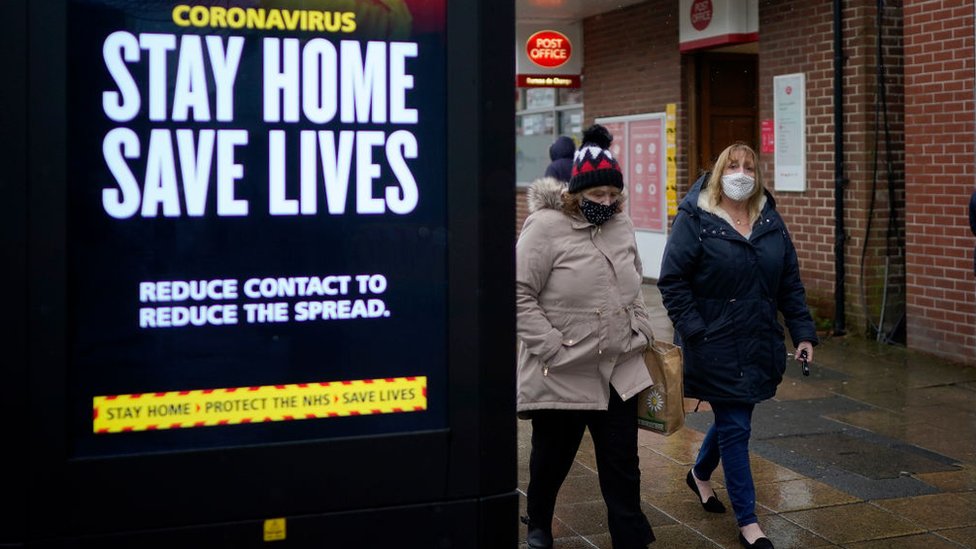
Act Like You’ve Got The Coronavirus – UK Government
People in England are being told to act like they have got Covid as part of a government advertising campaign aimed at tackling the rise in infections.
Boris Johnson said the public should “stay at home” and not get complacent.
On Friday 1,325 deaths within 28 days of a positive Covid test were recorded in the UK – the highest daily figure yet – along with 68,053 new cases.
Government sources say there is likely to be more focus from police on enforcing rather than explaining rules.
“With over 1,000 people dying yesterday it’s more important than ever everyone sticks to rules,”
As cases and deaths soar, the government is releasing its advertising campaign, which will be shared across television, radio, newspapers and on social media.
England’s chief medical officer, Prof Chris Whitty, says in the advert: “Vaccines give clear hope for the future, but for now we must all stay home, protect the NHS and save lives.”
Prime Minister Boris Johnson says hospitals are “under more pressure than at any other time since the start of the pandemic”, with infection rates increasing at an “alarming rate” across the country and the NHS under “severe strain”.
It comes after London’s mayor Sadiq Khan said the spread of coronavirus was “out of control” as he declared a “major incident” in the capital on Friday.
Such an incident is an emergency that requires the implementation of special arrangements by one or all of the emergency services, the NHS or the local authority.
It means the emergency services and hospitals cannot guarantee their normal level of response.
While the government seeks to reinforce its “stay at home” message, some police forces have faced criticism for their approaches to tackling potential breaches of coronavirus restrictions.
Derbyshire Police has said it will review fixed penalties issued during the new national lockdown after two women were ordered to pay £200 each after driving five miles from their home for a walk on Wednesday.
Susan Michie, a professor of health psychology at University College London, said “more support and enablement” was needed for people to adhere to the regulations, for example support to help people self-isolate, rather than punishment.
Prof Michie, who sits on a subcommittee of the government’s Scientific Advisory Group for Emergencies, also said the current restrictions were “too lax”.
“When you look at the data, it shows that almost 90% of people are overwhelmingly adhering to the rules despite the fact that we’re also seeing more people out and about,” she told BBC Radio 4’s Today programme.
However, she said in comparison to the first lockdown last spring the restrictions were less strict, with more people allowed to go out to work and children’s nurseries open, meaning public transport is busier.
Prof Michie added that the winter season posed extra challenges because the virus survives longer in the cold and people spend more time indoors, where the virus can spread more easily.
Combined with the more transmissible new variant, she said “we should have a stricter rather than less strict lockdown than we had back in March”.
Dr Adam Kucharski, another scientist advising the government and an associate professor of infectious disease epidemiology at the London School of Hygiene and Tropical Medicine, said that because the new variant was more transmissible “each interaction we have has become riskier than it was before”.
“So even if we went back to that kind of last spring level of reduction in contacts we couldn’t be confident that we would see the same effect that we saw last year because of this increased transmission,” he said.
England, much of Scotland, Wales and Northern Ireland continue to be under strict national measures, with stay-at-home orders in place for most people.

